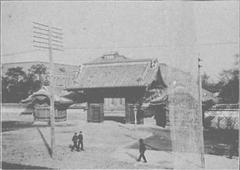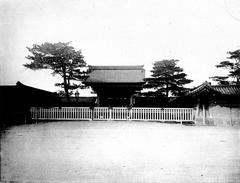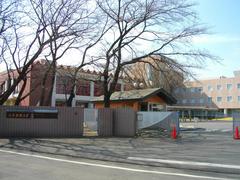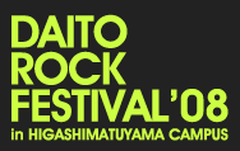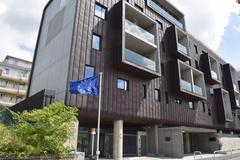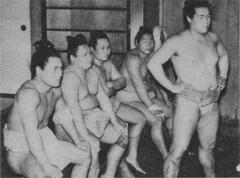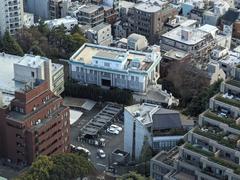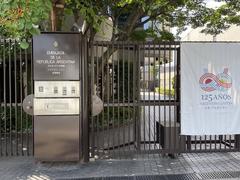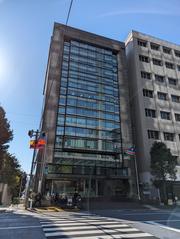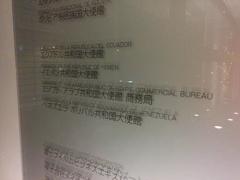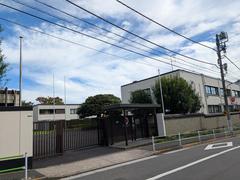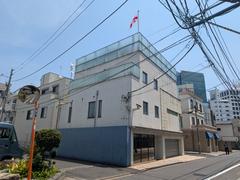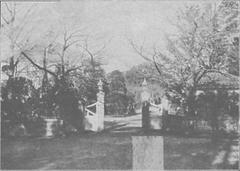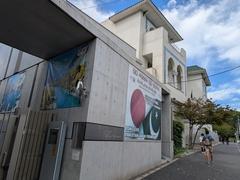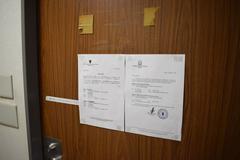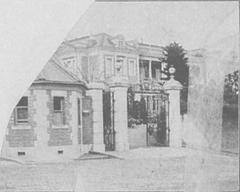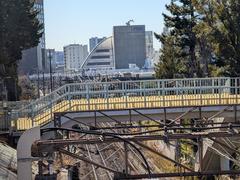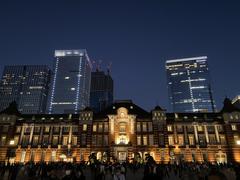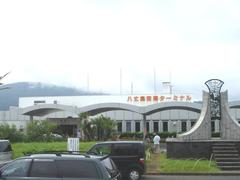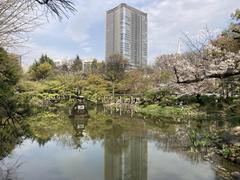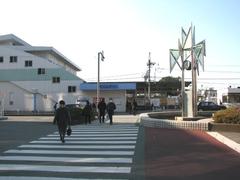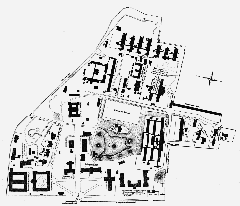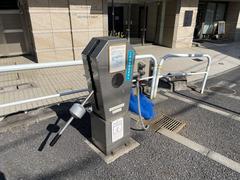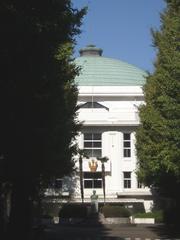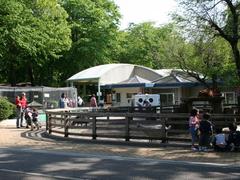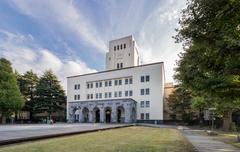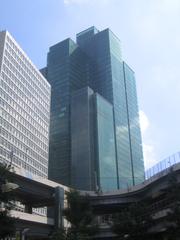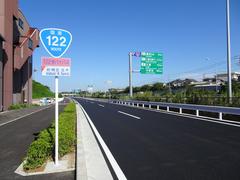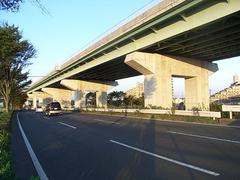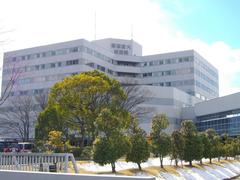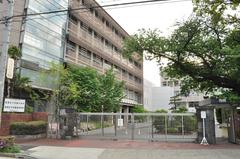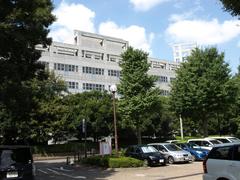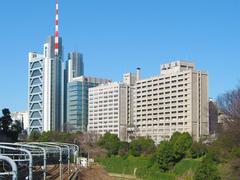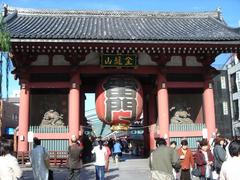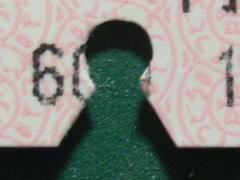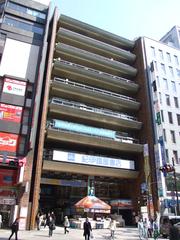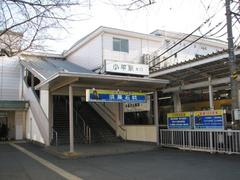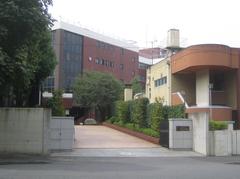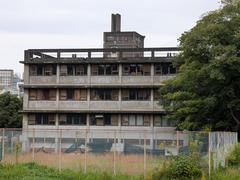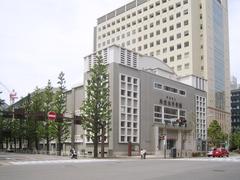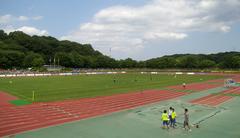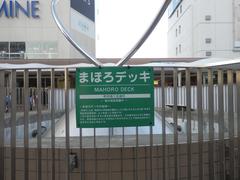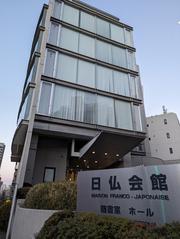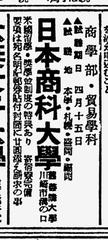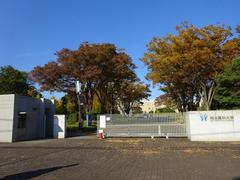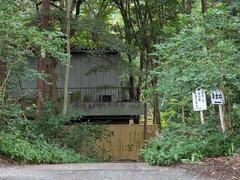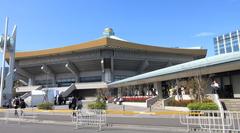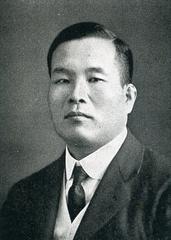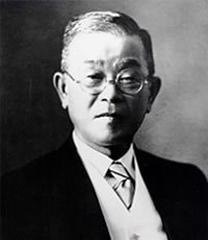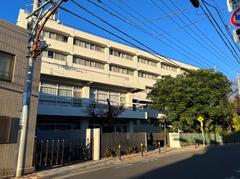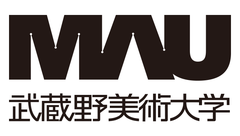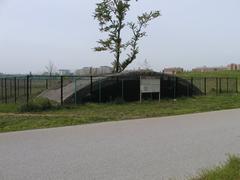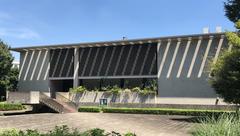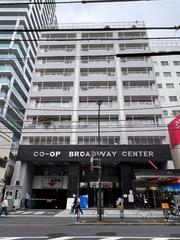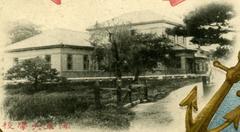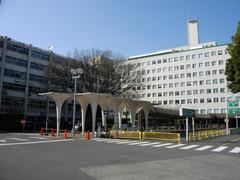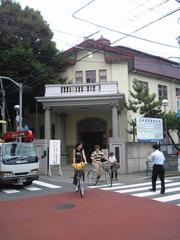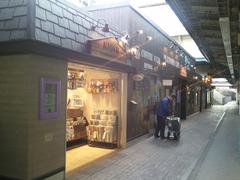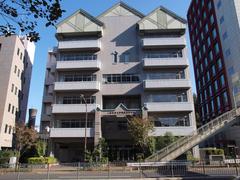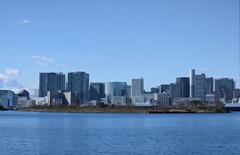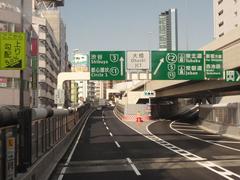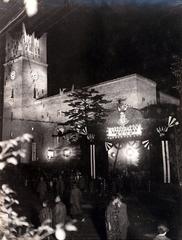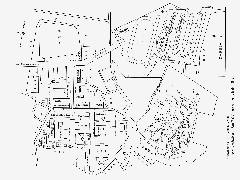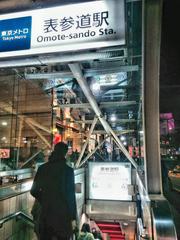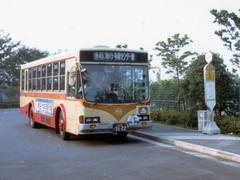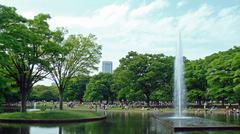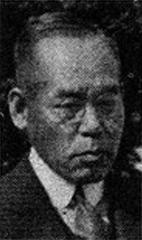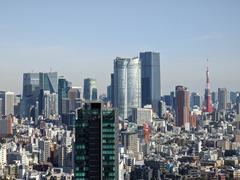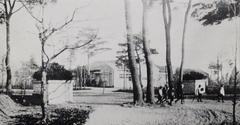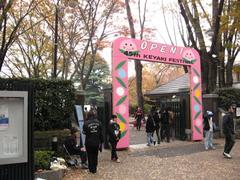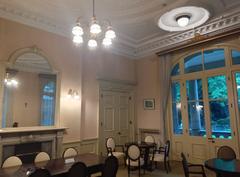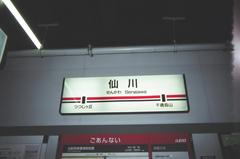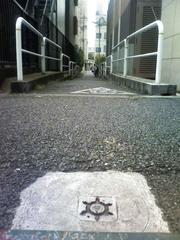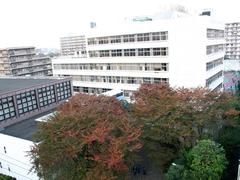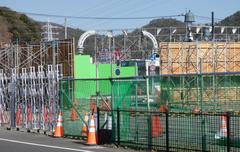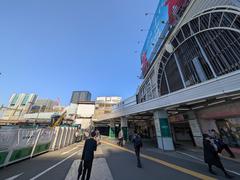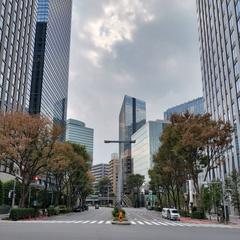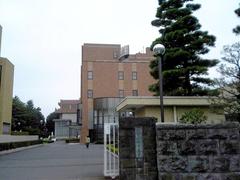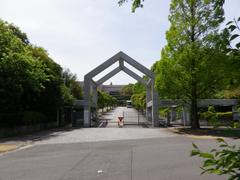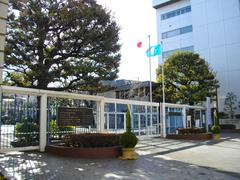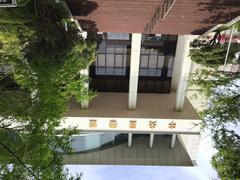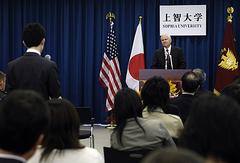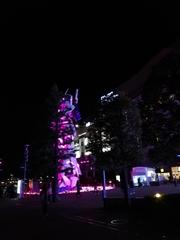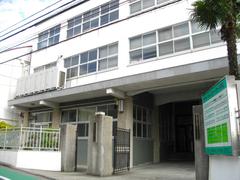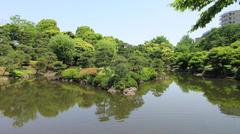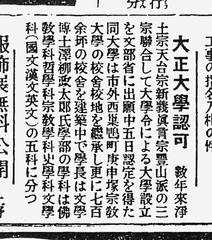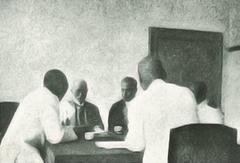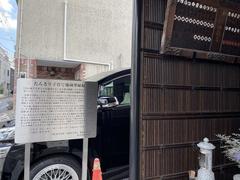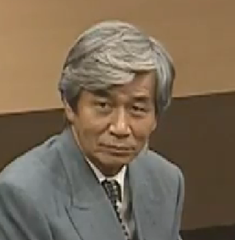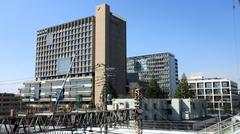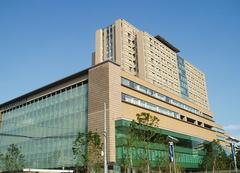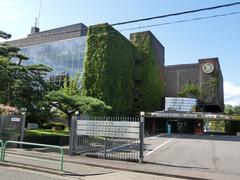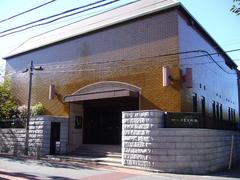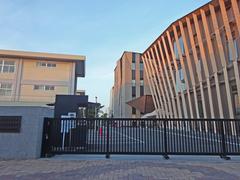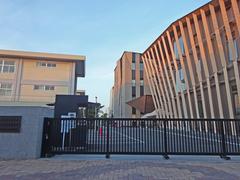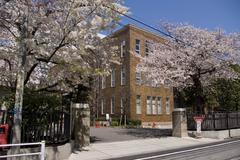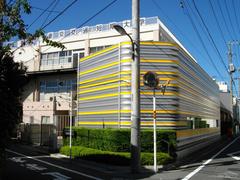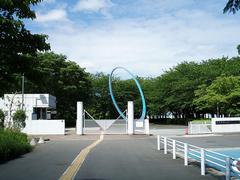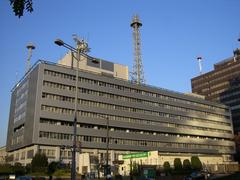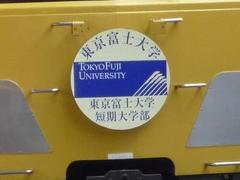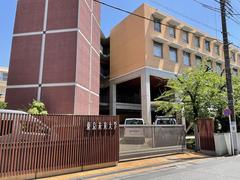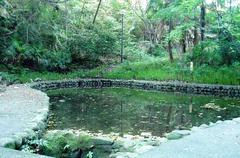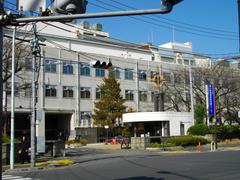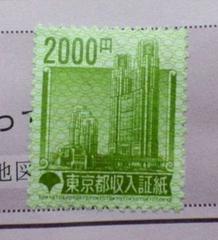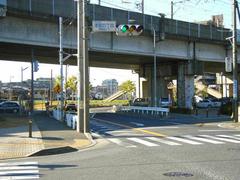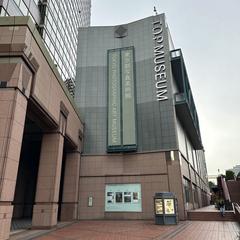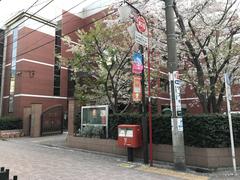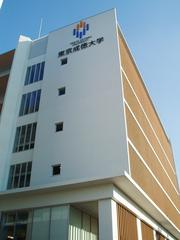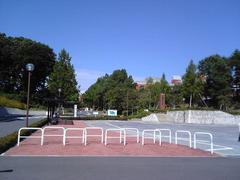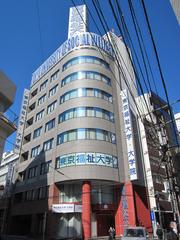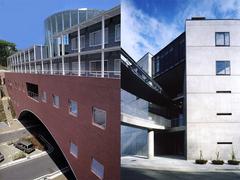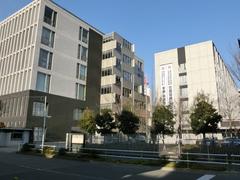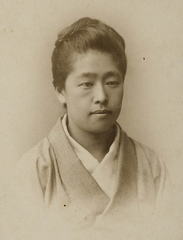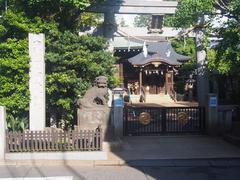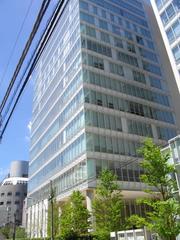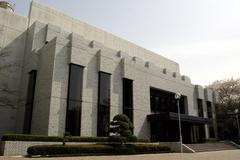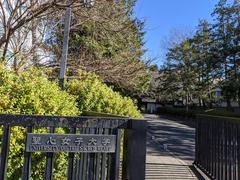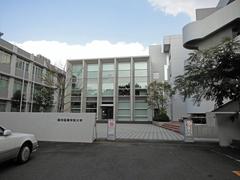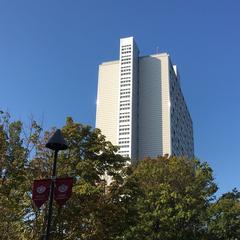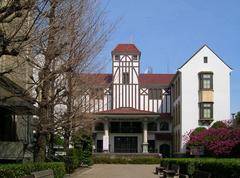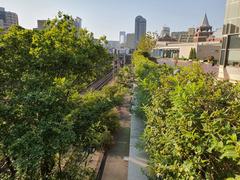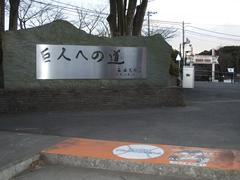Embassy of Gabon in Tokyo: Visiting Hours, Tickets, and Comprehensive Travel Guide
Date: 04/07/2025
Introduction
The Embassy of Gabon in Tokyo is a vital diplomatic outpost, representing Gabon’s interests in Japan and serving as a bridge for cultural, economic, and political exchange between the two nations. Established following Gabon’s independence and the formalization of Gabon-Japan diplomatic relations in 1962, the embassy is a hub for consular assistance, bilateral cooperation, and community engagement. Conveniently situated in Meguro-ku, Tokyo, the embassy is accessible to both Gabonese nationals and foreign visitors, providing a range of essential services and opportunities for cultural enrichment (embassies.info, embassies.net).
This guide offers detailed information on visiting hours, appointment protocols, consular services, visa requirements, and travel tips. It also highlights nearby attractions and practical advice for an informed and rewarding visit to the Embassy of Gabon in Tokyo.
Table of Contents
- Introduction
- Historical Evolution of Gabon’s Diplomatic Presence in Japan
- Location and Accessibility
- Visiting Hours and Appointment Details
- Consular Services and Visitor Information
- Diplomatic Significance and Bilateral Engagement
- Directions and Nearby Attractions
- Frequently Asked Questions (FAQ)
- Conclusion and Call to Action
- References
Historical Evolution of Gabon’s Diplomatic Presence in Japan
Establishment and Growth
Gabon and Japan established diplomatic relations in 1962, shortly after Gabon’s independence in 1960. The Tokyo embassy was founded as a strategic platform for deepening partnerships beyond Francophone Africa, supporting economic, cultural, and political engagement with one of Asia’s leading nations (embassies.info). Over the years, the embassy has actively promoted trade, investment, and bilateral dialogue.
Location and Accessibility
Address:
1-34-11, Higashigaoka, Meguro-ku, Tokyo 152-0021, Japan
The embassy is located in a tranquil residential area of Meguro-ku, easily accessible via public transportation and close to prominent Tokyo landmarks such as Shibuya Crossing (embassies.net).
Nearest Stations:
- Higashiyama Station (Tokyu Toyoko Line), approx. 10-minute walk
- Meguro and Ebisu Stations (JR Yamanote and Hibiya Lines), short walk or taxi ride
The embassy provides accessible facilities for visitors with disabilities. For specific needs, contact the embassy in advance.
Visiting Hours and Appointment Details
- Opening Hours: Monday to Friday, 9:00 AM – 5:00 PM (closed on Japanese and Gabonese public holidays)
- Appointments: Required for all consular services (visa, passport, legalization). Book via phone or email.
- Contact:
- Phone: +81 3 5430 9171
- Email: [email protected]
- Official Website
Ensure you have a confirmed appointment and bring valid identification for entry.
Consular Services and Visitor Information
Visa Application and Immigration Services
The embassy processes the following visa types:
- Tourist Visas: For short leisure stays
- Business Visas: For professional travel
- Student Visas: For educational purposes
- Diplomatic/Official Visas: For government and international organization personnel
Required Documents:
- Valid passport (min. 6 months’ validity)
- Completed visa application form
- Passport-sized photographs
- Accommodation proof (hotel or invitation letter)
- Travel itinerary
- Financial proof
- Supporting letters (if applicable)
Visa processing times vary; apply early. The eVisa and eTA systems further streamline applications (embassies.info).
Passport and Legalization Services
Services for Gabonese nationals include:
- Passport issuance and renewal
- Replacement of lost/stolen passports
- Authentication and legalization of documents (birth, marriage, academic, business)
Legalization services are also available for foreign nationals with documents destined for use in Gabon or Japan.
Emergency Assistance
The embassy offers support in emergencies, including:
- Loss or theft of travel documents
- Medical emergencies
- Legal issues or detention
- Repatriation in exceptional cases
Gabonese nationals are encouraged to register with the embassy upon arrival in Japan.
Diplomatic Significance and Bilateral Engagement
Economic and Trade Relations
Japan is one of Gabon’s key economic partners, particularly in oil, minerals, timber, fisheries, and renewable energy. The embassy promotes investment, technology transfer, and trade relations to support Gabon’s economic diversification (embassies.info).
Cultural and Educational Exchange
The embassy organizes cultural events and supports Gabonese students in Japan through scholarships and academic partnerships. Collaborative exhibitions and educational programs promote mutual understanding (123embassy.com).
Multilateral Cooperation
Active in international forums and regional initiatives, the embassy works with other African missions and participates in events such as the Tokyo International Conference on African Development (TICAD).
Directions and Nearby Attractions
Nearby Attractions:
- Meguro Historical Monument: Celebrates the area’s Edo-period legacy
- Meguro River: Famous for cherry blossoms in spring
- Tokyo Metropolitan Teien Art Museum: Art and architecture close by
- Ebisu Garden Place: Shopping and dining
- Shibuya Crossing: Iconic Tokyo landmark
Visitor Tip:
Combine your embassy visit with exploration of Meguro’s cultural and natural sites for a richer Tokyo experience (embassyin.jp).
Frequently Asked Questions (FAQ)
Q: What are the Gabon Embassy Tokyo opening hours?
A: Monday to Friday, 9:00 AM to 5:00 PM, closed on Japanese and Gabonese holidays.
Q: Do I need an appointment?
A: Yes, for all consular services, including visa and passport processing.
Q: What documents are required for a Gabon visa?
A: Valid passport, application form, photos, proof of accommodation, itinerary, and financial documents.
Q: Is the embassy accessible for people with disabilities?
A: Yes, but contact the embassy in advance to confirm arrangements.
Q: Does the embassy assist with emergencies?
A: Yes, for Gabonese nationals facing urgent situations in Japan.
Q: Is there an entrance fee to visit the embassy?
A: No, there is no ticket or entrance fee for consular appointments.
Visuals and Media
Etiquette and Visitor Tips
- Dress Code: Business or smart casual attire is recommended.
- Punctuality: Arrive on time for appointments.
- Identification: Bring photo ID and appointment confirmation.
- Photography: Prohibited without explicit permission.
- Language: French and English are spoken; some staff speak Japanese.
- Accessibility: Facilities are wheelchair accessible; confirm specific needs in advance.
Respect both Gabonese hospitality and Japanese formal etiquette. Modest gifts are appreciated for official events, but not required for routine visits.
Notable Events and Milestones
- Facilitation of official visits between Gabon and Japan
- Participation in TICAD and other international forums
- Hosting of Gabonese cultural festivals and exhibitions in Tokyo
Conclusion and Call to Action
The Embassy of Gabon in Tokyo is a cornerstone for Gabon-Japan relations, offering essential consular services and fostering economic, cultural, and educational ties. Plan your visit by consulting the official website for the latest updates, booking your appointment in advance, and preparing necessary documents. Explore Meguro’s cultural offerings to make your trip even more memorable. For real-time embassy news and travel updates, consider using the Audiala app and following the embassy on social media.
References
- Embassy of Gabon in Tokyo: Visiting Hours, Services, and Diplomatic Role (embassies.info)
- Gabon Embassy Tokyo: Visiting Hours, Visa Services, and Essential Visitor Information (gabonembassy-tokyo.org)
- Visiting the Gabon Embassy Tokyo: Hours, Etiquette, and Nearby Attractions (embassytokyo.com)
- Gabon Embassy Tokyo Location and Services (123embassy.com)
- Embassy of Gabon in Tokyo Official Website (embassyin.jp)
Additional resources for cultural and travel tips:
- The Invisible Tourist’s Japan Guide
- Travel + Leisure Asia’s Tokyo Guide
- Klook’s New Things to Do in Japan


